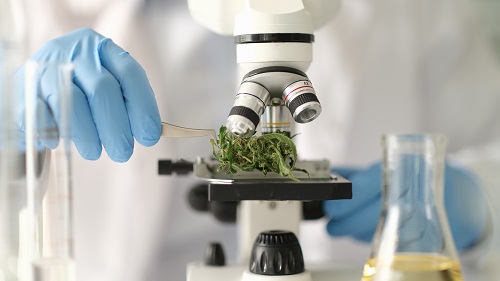Medical marijuana has been a hotly debated topic in the United States for decades, and Florida is no exception. Medical Marijuana Legislation In Florida has gone through significant changes over the years, affecting patients’ access to this alternative form of treatment.
The Beginning: Compassionate Use Act (2014)
In 2014, Florida passed its first medical marijuana law known as the Compassionate Use Act. This bill allowed patients with severe epilepsy or cancer to use low-THC cannabis oil to manage their symptoms. However, it was strictly limited to only those two conditions and required a doctor’s approval. The law also stated that only five distributors would be licensed to grow and distribute medical marijuana in the state.
This legislation received criticism for being too restrictive and not providing enough access to patients who could benefit from medical marijuana. Many also argued that the limited number of distributors would create a monopoly, driving up prices for patients.
The Second Try: Amendment 2 (2016)
In 2016, Florida voters approved Amendment 2, which expanded the list of qualifying conditions for medical marijuana use. The new law allowed doctors to recommend medical marijuana for debilitating conditions such as HIV/AIDS, Parkinson’s disease, and multiple sclerosis.
Amendment 2 also increased the number of licensed dispensaries from five to ten per distributor, providing more access to patients. However, these dispensaries were still required to be vertically integrated, meaning they had to handle every step of the process from growing to selling.
The Reform: Senate Bill 8A (2017)
After Amendment 2’s passing, Florida lawmakers passed Senate Bill 8A to implement regulations for the state’s medical marijuana program. This bill made significant changes to the system, including allowing patients with terminal conditions to obtain full-strength medical marijuana and removing the vertical integration requirement for dispensaries.
The reform also established a Medical Marijuana Use Registry, which tracks patient information and orders. Additionally, it established a Medical Marijuana Advisory Committee to provide recommendations on rules and regulations for the program.
The Current State: Legislation Changes & Challenges
Since then, Florida has continued to make adjustments to its medical marijuana laws, both through legislation changes and court rulings. In 2018, Governor Rick Scott signed House Bill 6049, which banned the smoking of medical marijuana and required patients to obtain a prescription from a doctor rather than just a recommendation.
However, this ban on smoking was eventually overturned by a court ruling in 2019, allowing patients to smoke medical marijuana if it is recommended by their doctor. In 2020, Florida also passed legislation allowing edible forms of medical marijuana to be sold at dispensaries.
Despite these changes, challenges remain for patients trying to access medical marijuana in Florida. The process can be lengthy and expensive, with high costs for both the patient and the industry itself due to strict regulations. Many are now calling for further reform to improve accessibility and affordability for patients.
In conclusion, Florida’s journey with medical marijuana legislation has been evolving over the years, with changes being made to expand access and improve the program’s functionality. While there are still challenges to be addressed, it is clear that medical marijuana has become a crucial alternative treatment option for many patients in Florida. Overall, the state’s progress on this issue reflects a greater shift towards understanding and accepting the potential benefits of medical marijuana for those in need.
Benefits Of Medical Marijuana In Florida
The legalization of medical marijuana in Florida has brought numerous benefits to patients and the state’s economy. Some of these benefits include:
- Alternative Treatment Option: For many patients, traditional medications may not effectively manage their symptoms or come with unwanted side effects. Medical marijuana provides a natural alternative that can alleviate pain, nausea, seizures, and other conditions.
- Economic Growth: The medical marijuana industry has created jobs and generated revenue for the state of Florida. It is estimated that by 2025, the industry will bring in over $1 billion in annual sales.
- Increased Access: With the expansion of qualifying conditions and changes to regulations, more patients are now able to access medical marijuana in Florida. This allows them to have more control over their treatment and potentially improve their quality of life.
- Reduced Opioid Use: Medical marijuana has been linked to a decrease in opioid use, which can help combat the opioid epidemic in Florida. A study by the University of Georgia found that states with medical marijuana laws saw a 23% reduction in opioid prescriptions.
All Natural MD: Empowering Patients Through Expert Medical Marijuana Doctors
All Natural MD, a renowned Florida-based healthcare provider, plays a pivotal role in the medical marijuana landscape of the state. Our team of expert medical marijuana doctors is committed to helping patients navigate the complex process of obtaining medical marijuana for their treatment. These physicians not only understand the intricacies of medical marijuana legislation in Florida but also possess a compassionate outlook toward patient care. They are devoted to making medical marijuana accessible to those who need it the most, ensuring that all patients receive comprehensive, personalized care.
Our doctors provide thorough evaluations to determine the suitability of medical marijuana for each individual’s unique medical condition. They also assist patients in understanding the potential benefits and risks associated with its use. Guiding patients step by step through the process of applying for a medical marijuana card, our doctors help streamline access to this groundbreaking treatment. Contact us today for more information.



